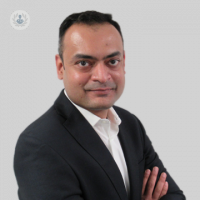Acupuncture for fertility
Dr Roshan Thawale - Pain medicine
Created on: 05-25-2017
Updated on: 10-23-2023
Edited by: Conor Lynch
What is acupuncture for fertility?
Acupuncture is a traditional form of Chinese medicine which involves stimulating the body’s natural energy flow with small needles, targeting particular areas of the body depending on the health problem or the area affected. Acupuncture is traditionally used to relieve pain, as the needles used stimulate endorphins, which are naturally produced by the body as a response to pain.

Why is it done?
Acupuncture and Chinese medicine take a more holistic approach to healing the body, looking at the whole person and the underlying problems which may exist rather than simply targeting a specific pathology or health issue. For this reason, Chinese medicine and other similar alternative therapies are growing in popularity – not as a treatment, but rather as a complementary therapy to help reduce stress and anxiety.
Practitioners of acupuncture suggest that it can help to stimulate blood flow to the uterus, thus improving the chances of conception. In men, acupuncturists suggest that the practice may help to improve sperm count and sperm quality. However, there is no evidence to suggest that this does indeed work.
What does acupuncture involve?
Thin needles are inserted into the body in specific acupuncture points. During a session, you must lie still while needles are inserted under the skin. The needles remain in the skin for around 10 to 30 minutes, depending on the acupuncturist’s advice. Generally, acupuncture is not too painful, but it can be depending on the insertion point and the individual performing the procedure.
How do you prepare for acupuncture?
There is no specific preparation for acupuncture, but it should only be undertaken after a consultation with your regular GP or with a medical specialist. Acupuncture is used in the NHS as a form of complementary medicine, but generally it is used as a complement to pain management. Most patients, however, choose to go privately for their acupuncture sessions. Before choosing an acupuncturist, make sure they are a member of a national acupuncture organisation, and a regulated healthcare professional.
Is any recovery time necessary after acupuncture?
After acupuncture, you may feel a little tired or sleepy as the procedure can be relaxing. Take this into account when going to an appointment as you may be advised not to drive after your session. After treatment, it is advisable not to drink for a few hours.
What are the main alternatives to acupuncture for fertility?
Acupuncture is an alternative therapy in itself and should only be undertaken upon informing your regular doctor or after consulting with a specialist, who will be able to advise medical treatment if necessary. Evidence suggests that acupuncture does not improve fertility, but it may help to reduce stress in what can be a difficult time. Consult your doctor for advice before undertaking any additional therapies or treatment plans.
